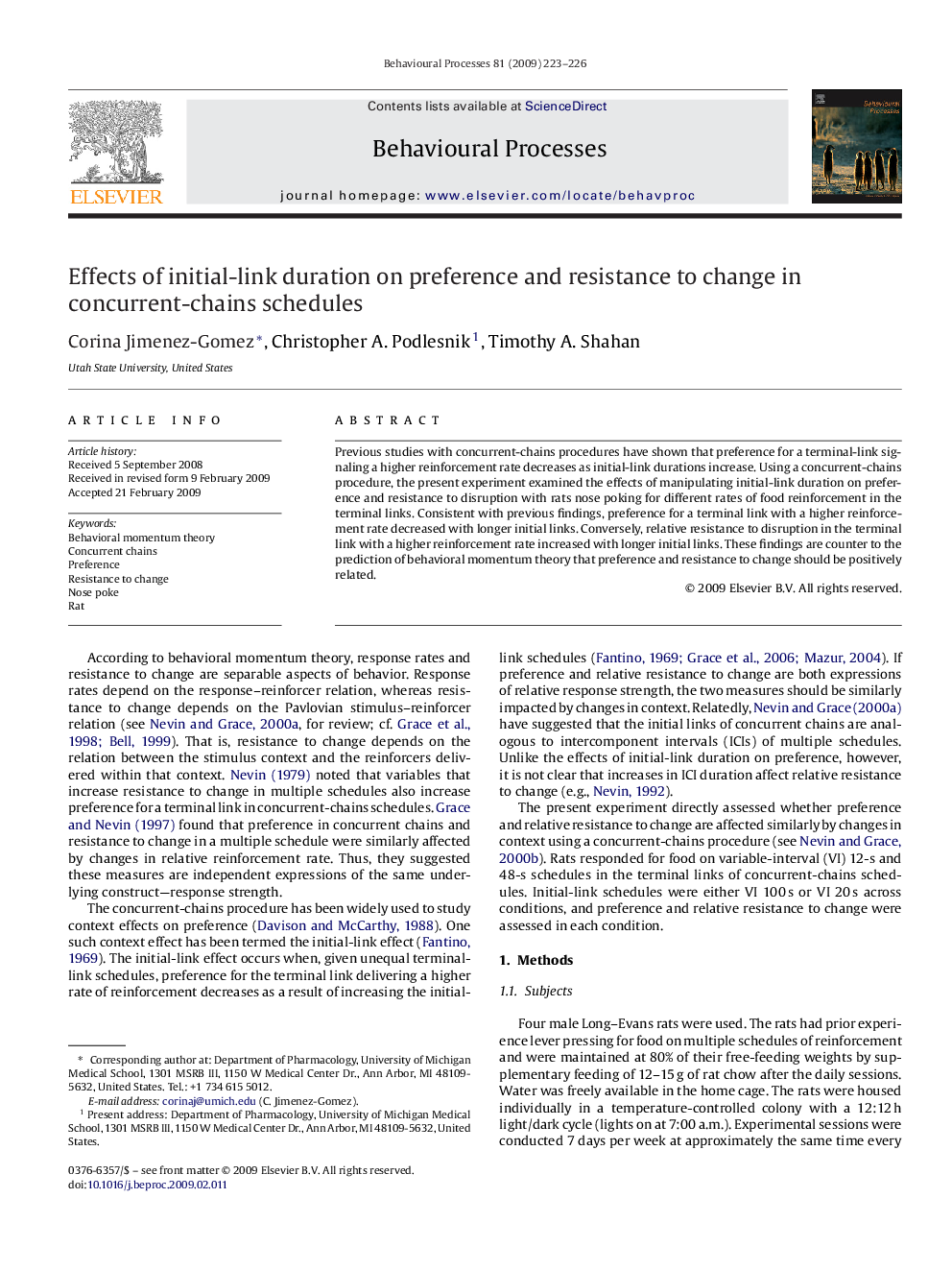| Article ID | Journal | Published Year | Pages | File Type |
|---|---|---|---|---|
| 2427349 | Behavioural Processes | 2009 | 4 Pages |
Previous studies with concurrent-chains procedures have shown that preference for a terminal-link signaling a higher reinforcement rate decreases as initial-link durations increase. Using a concurrent-chains procedure, the present experiment examined the effects of manipulating initial-link duration on preference and resistance to disruption with rats nose poking for different rates of food reinforcement in the terminal links. Consistent with previous findings, preference for a terminal link with a higher reinforcement rate decreased with longer initial links. Conversely, relative resistance to disruption in the terminal link with a higher reinforcement rate increased with longer initial links. These findings are counter to the prediction of behavioral momentum theory that preference and resistance to change should be positively related.
